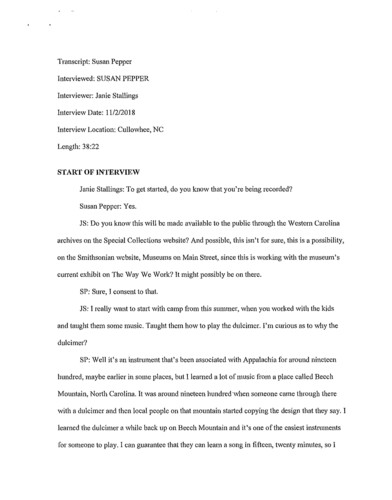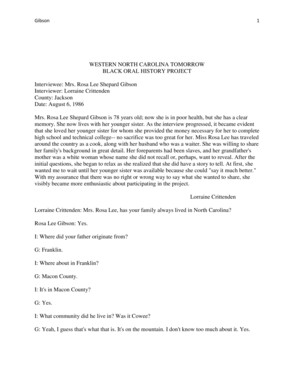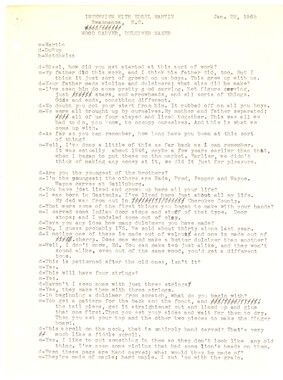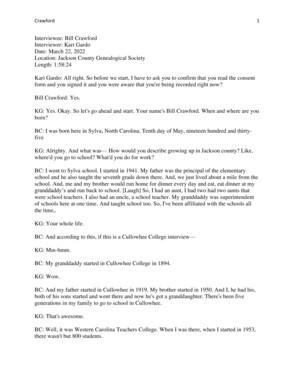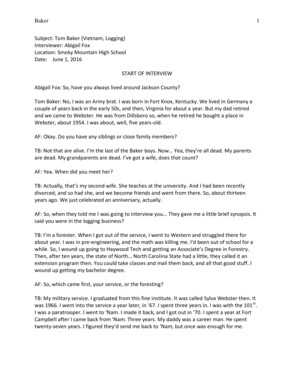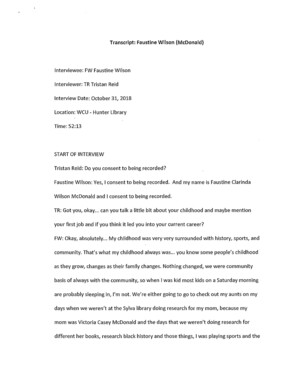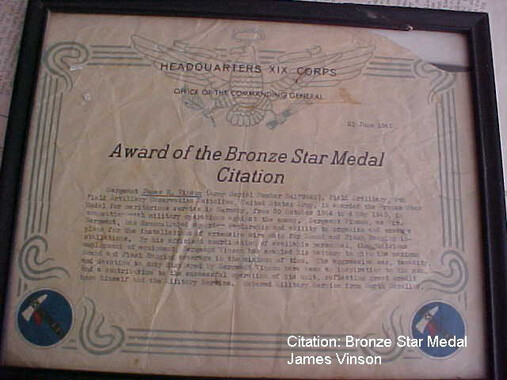- African Americans (390)
- Appalachian Trail (35)
- Artisans (521)
- Cherokee art (84)
- Cherokee artists -- North Carolina (10)
- Cherokee language (21)
- Cherokee pottery (101)
- Cherokee women (208)
- Church buildings (170)
- Civilian Conservation Corps (U.S.) (110)
- College student newspapers and periodicals (1830)
- Dams (107)
- Dance (1023)
- Education (222)
- Floods (61)
- Folk music (1015)
- Forced removal, 1813-1903 (2)
- Forest conservation (220)
- Forests and forestry (1184)
- Gender nonconformity (4)
- Great Smoky Mountains National Park (N.C. and Tenn.) (181)
- Hunting (38)
- Landscape photography (25)
- Logging (118)
- Maps (83)
- Mines and mineral resources (8)
- North Carolina -- Maps (18)
- Paper industry (38)
- Postcards (255)
- Pottery (135)
- Railroad trains (71)
- Rural electrification -- North Carolina, Western (3)
- School integration -- Southern States (2)
- Segregation -- North Carolina, Western (5)
- Slavery (5)
- Sports (452)
- Storytelling (244)
- Waterfalls -- Great Smoky Mountains (N.C. and Tenn.) (66)
- Weaving -- Appalachian Region, Southern (280)
- Wood-carving -- Appalachian Region, Southern (328)
- World War, 1939-1945 (173)
Interview with Susan Pepper
Item
Item’s are ‘child’ level descriptions to ‘parent’ objects, (e.g. one page of a whole book).
-
-
Transcript: Susan Pepper Interviewed: SUSAN PEPPER Interviewer: Janie Stallings Interview Date: 11/2/2018 Interview Location: Cullowhee, NC Length: 38:22 START OF INTERVIEW Janie Stallings: To get started, do you know that you're being recorded? Susan Pepper: Yes. JS: Do you know this will be made available to the public through the Western Carolina archives on the Special Collections website? And possible, this isn't for sure, this is a possibility, on the Smithsonian website, Museums on Main Street, since this is working with the museum's current exhibit on The Way We Work? It might possibly be on there. SP: Sure, I consent to that. JS: I really want to start with camp from this summer, when you worked with the kids and taught them some music. Taught them how to play the dulcimer. I'm curious as to why the dulcimer? SP: Well it's an instrument that's been associated with Appalachia for around nineteen hundred, maybe earlier in some places, but I learned a lot of music from a place called Beech Mountain, North Carolina. It was around nineteen hundred when someone came through there with a dulcimer and then local people on that mountain started copying the design that they say. I learned the dulcimer a while back up on Beech Mountain and it's one of the easiest instruments for someone to play. I can guarantee that they can learn a song in fifteen, twenty minutes, so I Susan Pepper 2 like to give people that feeling of excitement. That thrill of actually being able to play a song so that the two things: that it's really iconic for Appalachia and then it's also extremely accessible. JS: Beech Mountain. Can you tell me a little bit about what is Beech Mountain and why you studied there? SP: Sure. It's a mountain that's both in Avery and Watauga County and it's about a fotty minute drive from Boone. It's really close to an area called Valley Crucis which people know there's a mass store there and you climb up a mountain and it's just a majestic, high elevation area. It was pretty isolated, there was some communities, families up there that were intermarried and related. They had a number of interesting music traditions that persisted for a good hundred years, throughout the twentieth century and way before the twentieth century. It was an early settlement and my professor, Dr. Cece Conway is saying it was the earliest settlement in Appalachia. Now I don't know what her research is but that's what she's saying. That reason it's music and Jack tale telling tradition are important. There was a man you might've heard of, Ray Hicks, he was from there. There was a guy, Richard Chase, a folk who collected stories and he collected a lot from people there. There's Ward, Prestnal, and Hicks are some of the prominent family names there and they made dulcimer, fret-less mountain banjos, a lot of songs and stories were collected. I just know a lot of nice people up there who shared some of what they do with me. Some of their family traditions with me and that's special. JS: Were you at App State at the time? SP: mmhmm. JS: What were you studying? SP: I did a master's in Appalachian studies. JS: Are you from this area? SP:No. JS: Oh, okay. Where are you from? SP: Cincinnati, Ohio. JS: What brought you down to Appalachia? Susan Pepper 3 SP: Actually the music. There's a lot of Appalachians who live in Ohio who migrated up for work in the twentieth century and there's a lot of bluegrass. I got started in the tradition. I learned more about the ballads and came down to a song camp at Warren Wilson College called the Swannanoa gathering. Then I decided to move down and learn some more. JS: You got introduced to Appalachia music and storytelling in Ohio? What all instruments do you play? Cause I know you've got at least a couple that you know how to .. SP: The main ones I perform on are guitar, banjo, and dulcimer. I do unaccompanied ballads as well as sing folk songs with the instruments. I'm cmTently teaching a little bit of fiddle and I've studied a little bit of fiddle. I teach it at the Junior Appalachian Musicians Program because there aren't that many fiddlers available but I don't really perform on that one so much. JS: Could you tell me about the program that you just mentioned? The Junior Appalachian ... SP: The JAM program. I'm trying to remember when it was started, it was started I think in the very early 2000s in Sparta, North Carolina. It was Allegheny County and it was started by a social work counselor in a school. Where I ended up working. It was started to help pass on the music that's part of their heritage to the kids and also, especially, also help with disadvantaged kids. There's a lot of kids on free lunch or reduced lunch at this school where she started it and she would find that it helps school attendance and things like that. It brings in artists from the community who play old time and bluegrass music after school, one to two times a week and to Susan Pepper 4 work with the kids. Teach the instruments and they perform for their community and the hope is it helps build co1mmmity as well as teaches the music. They're located all throughout western North Carolina, Virginia, there's some in South Carolina. It's spread and there's a central program called JAM Inc that helps other ones start. It's kind of a movement. Now that it's been going for over ten years there's young ones who now have grown up and now tech in the program so we're seeing it really has worked. A lot of people just get enrichment, but you also get musicians who go on to become real community musicians. JS: That's really exciting. That sounds like a really great program that's going on in the area. So I'll probably circle back around a couple oftimes, but what about Appalachian music brought you to this area? What was it about the music that sparked that passion that you have? SP: I recently was being interviewed by a man and I was talking about how this song I was singing, this ballad, seemed kind of llll-relatable almost. It was just so old, antiquated sounded, and he said, "well, sometimes these songs might help you feel or express an emotion you didn't even know you have." A lot of it is the emotion and colll1ecting to my emotions. I think it's almost like a spiritual thing because of a colll1ection with history and colll1ecting with the people who's songs I am that I've learned there from a field recording or a direct transmission. There's something really fulfilling and invigorating about it. I think that's the specific thing. I think I was also ... I studied French and Italian in college and I think, for me, it was exciting to exploring cultures right around where I grew up rather than like I need to go to Italy to learn culture. It's like, "Oh my gosh, look at all this diversity in our own country," and that excited me. It excited me to find some real culture versus maybe just mainstream consumerism, strip mall culture. Behind that we have all these cultural histories and I'm happy to Susan Pepper 5 be connected with that. It just makes me feel more alive to be connected with this history. I guess you probably feel the same way. JS: Oh, definitely! [laughter] Especially doing projects like this. I from Georgia originally, north Georgia so teclmically from the Appalachian valley, but I moved to the D.C. area for about six years between when I lived in Georgia and when I live here now so I've had this re-ignited interest and passion about learning Appalachian history and culture. Growing up in it it was present always, so it wasn't as special of a thing when you grow up in it so much. Then I left it, and missed it so it kind of reignited this passion. You write ballads? SP: I write I'd say more folk songs or Americana songs. JS: What are some songs that write? What are they about? SP: Nature. Connection to nature in a spiritual way. I write songs based on the stories of the lives of some of these elders that I meet in the community in Appalachia. Some of them are about mountain life, rural mountain life. A lot of them are inspired by stories from friends and people that I know and landscape. Those are the main things, but I do think I'm inspired by the traditional music styles and I incorporate that in some of the themes. They're kind oftypical love, death, all those kinds of things. Spirituality, old themes. JS: I remember the songs that you did at the summer camp this past summer and what you were teaching the kids about was great. When you- SP: Oh, you were there. JS: Yeah, sorry, yeah I was there kind of hanging out there in the back of the room. I was pretty quiet. SP: that camp looked so cool. Susan Pepper 6 JS: It was fun. It was a fun time to teach the kids some about the history of the community and do things like music. Being able to sit in the back and kind of watch it was great.1 SP: I think one thing I like, in the city where I grew up there were a lot of monuments and history like that, but it's neat in the mountains that it's a little bit more natured connected. It'll be like, "on this mountain such and such happened." It's even more like history is all around even though truly you can find history in a lot of places. JS: Yeah, when I was doing an interview ... I'm going to flip tluough the notes I took with the student. A student who's actually a storyteller, a new generation storyteller, he said something that I thought was just incredible. He said, "because of the hills time doesn't goes right around here." It goes differently. That was a pretty cool way of thinking about this area being affected differently by time that I think is really interesting. When you perform for people, what do you want them to get out of your perf01mance? Take away from your music? SP: I hope they'll connect emotionally to the material that I present and that they might have more of a appreciation of the Appalachian music. I can talk more about it. I'm just staying what comes to mind. JS: Oh yeah, take your time. SP: I try to entertain and educate, but I guess I entertain mostly by giving some background and stories about the music at the same. That's what people tend to like. JS: Do you ever perform outside of this area? Outside of Appalachia? · SP: A little bit. 1 The camp discussed is the annual Step Back in Time summer day-camp for children hosted by the Mountain Heritage Center at Western Carolina University where the interviewer worked and the interviewee performed and taught for an afternoon. Susan Pepper 7 JS: Do you ever noticed a difference in performing here in this area, in Appalachia, and then outside of it? SP: Well recently, I taught a traditional song camp a year ago, up in ... so I flew into Boston then I went up, so it was up in Massachusetts somewhere. They didn't know that much about it. They have a lot of song traditions up there in the nmtheast but they don't know about it that much. I actually performed at the Library of Congress in the House Concert in D.C. in August but these are traditional song fans so they're really interested in hearing something that seems authentic. I don't know, lately I've had good audiences. I've been preforming for people who are really into this kind of thing, but don't always know that much about it. Lately I've been performing out in Franklin and there's this place called the Cowee Heritage School. Basically I've been performing places where there are these great communities that love, that are interested in either traditional music or the heritage of this area. Whether it's outside of the region or not, those people are really a great audience. I guess lately, I've had kind of a hand picked audience that's been good. When I was up in Ohio people were interested but it just felt, like when I was just performing in general community events, people seemed interested but it just felt a little bit ... I just felt strange performing. It just felt like these songs, I felt like I don't know if people are really going to get it to the same effect. There are a lot of people with Appalachian heritage so ifl could find the same kind of hand picked community it could work, but sometimes I was just at the local library and it felt a little bit less relevant. I didn't feel as inspired to share my ballads as I do now in this region. I feel like we Jive in an area where there are a lot of people who are really interested. I don't know, it works both ways, I think that there could be some more interest because it's different outside of the region. Susan Pepper 8 SJ: Do you consider writing music, writing ballads, performing music, do you consider it work? SP: Performing and writing? I consider it, I'm kind of moving more to that direction as I professionalize it and because I've decided to make it my career. Yes and no. I have a family and it can take resources to pay for childcare so I can go perform and resources to buy the gas and travel and jus the whole setting up and giving it everything I have takes energy. In that sense I feel like it's work and I try to get some compensation. But at the same time, it's completely of passion and a calling that goes way beyond than, "this is just my job." I don't want to take it for granted and it feeds me so ifl need to go practice. I've been trying to make that feel more like part of my job as much as getting on the computer and booking a gig. Actually practicing music is just, or more, important, but it also feeds and makes me feel grounded and well and happy. I think I'm just lucky that I love my work. I will say though, it, in different circumstances, it's hard to make a living at this work. In someways I have the luxury to pursue it right now as my full time work but I think it's pretty difficult to make ... Any art field it's hard to make a living. JS: Oh yeah, my grandmother is an artist. She painted and my mother sang. She sings. She ended up going and teaching as her fi1ll time career but she sang opera when she was in high school with the local University that we lived near. That was, and still, is her passion. Now she's retired and she's thinking about joining a community group which is really excited. But I completely understand ... I don't want to call them struggles, but sometimes, I guess you could call them struggles of working as an artist, whether it be a musician or a painter, it kind of comes along with the career. Before you considered it really a career, like when you were studying music and things like that, what was that ... how was it a part of your life? Susan Pepper 9 SP: When I just started out, I started out in Cincinnati and I was just going and watching bands in my early twenties and songwriting. And just performing at an open mic here and there, just falling in love with it and not really thinking about it. Actually pretty early on I started making career plans. It's just taken my a while to wrap my head around it and feel like I'm at a point where I can say, "Hey, can you pay me this?" Really feel like I'm at a point now where that's what I can ask for whether or not I get it. Whereas when I was just starting out. .. you want to get experience. JS: I know that you mentioned a few areas where you've performed. What kind of, more recently, venues have you been performing at? Have they been kind of a smaller event or something like ... what are some of the locations more recently that you've been? SP: I mentioned in August, the library of Congress and the House Concert workshop that I gave up in D.C. Then I've been out in the Franklin area, at the heritage kind of venues, I've done three things like that this fall. Just at a venue in Asheville with a friend. I'm involved film, I'm producing a film with a friend. It's called the Mountain Minor, It tells a story about Appalachian migration from Kentucky to Ohio. It's about the music. We got invited to come out to Nevada and do a school program out there so I did that this past sunm1er too. That was the kind of thing. They were interested, the kids were really interested, but it was so ... there's not that connection there compared to to when I work with kids form this area. I feel like I know their might be a deeper cmmection because they may have a cmmection to family members that played music, but it's still worth while because we're teaching about different aspects of American and it's good. I think it's good to share it wherever. JS: What are, this kind of goes with that question ... so Appalachia, you know over the years and over decades, have been through different stereotypes that are kind of looked from the Susan Pepper 10 outside in. What are your views on some of the stereotypes that usually tend to get placed on the Appalachian area? SP: Well, the whole notion of it being so isolated and yeah, you have mountains and that's real and it still is real that mountains are a barrier. But that notion isn't accurate. It's amazing information came in and left and trading. I'm not a historian, I can't cite all of the specifics, but I know that there was trade and news exchange and all that. People migrating in and out so it's not just this. That notion and then the idea of people being uneducated or even ... that bother's me because there are so many, it's just not true. I know there are issues of poverty, but I've been fortunate to live in areas where that's not, there's just all kinds of people. I don't like to see that stereotype either because it just doesn't seem right. That's not what I see, it's not that different from anywhere else. In America there are all types of people and socioeconomic ... JS: The diversity in the area is on so many different levels. SP: Except for, I will say the etlmic diversity is very, very low in this area. I went to D.C. and it was like," Oh, this is awesome!" JS: Yeah, when we moved to that area it was quite, it was a culture shock, but in a great way that I will always appreciate. Kind of going off of that, when performing music, how do you see it either, I don't want necessarily say combating stereotypes, but you know what I'm trying to get at? Like fitting into that whole kind of realm. SP: Well, I think, ifl sing, there's a song called Old Joe's Fence, and I might tell a story about Pearl Hicks who taught it to me and I do that for a number of songs. I think at least it just gives a personality, it humanizes. I hate to say that. .. I think also having the reverence and respect that I show for the music tradition should be a positive thing. I'm not on a mission to combat stereotypes but I certainly hope that I guess in a way that I am. I don't have that as my Susan Pepper 11 mission but I am hoping to be a positive representative, I'm not from here but I am sharing these traditions and presenting them. I do it in a respectful way, honoring the people and I guess sometimes showing the unique genius of somebody who may have had a different upbringing. It's like making people can relate to the story they hear. I just think that's a good idea. People who aren't from here seem to like to here the stories and there may be a little bit of that, "oh let's here about the interesting Appalachians," or something. I think they like it because it's presented in a way that's respectfi.J! and honoring and then that feels good. JS: I'm really interested, curious, since you are from Ohio, Cincinnati, is there ever a moment where, I guess, being considered an "outsider?" Has that kind of impacted your work as a musician at all? SP: I think at first, when I was just getting into it I felt kind of, even when I was a masters student, I felt a little bit frustrated because I didn't know, I felt like I was going to be lesser than cause I wasn't the authentic singer. That was kind of hard, in a way, to deal with. I did feel that feeling of being a outsider. I'm starting to feel more like I'm starting to pay my dues or that I' be done enough work that I feel like I have more credibility. I feel a little bit more respected and honored as a sharer of the traditions. I think that just being upfront about where I'm from and how I came into it, then it's my story. I think there's always something interesting about the people have grown up in the tradition. I think that's some thing really to celebrate too. JS: Where do you, going forward, where are you wanting your music to kind of take you? SP: With the other question, I would say too, sometimes people who grew up in the area might be privileged for certain jobs, and they should be, but it sometimes, in a way, I wasn't sure if it would be a good reason for me to stay in because I didn't want to just be an outsider. Now I just feel that music goes beyond geographic boundaries. I was in North Carolina, learned a lot, Susan Pepper 12 went back to Ohio, and came back and I felt embraced so I just feel like this is my musical home. I think that's part of history too, people migrate and it's kind of mine too. It may have been my ancestors at some point as well. What was your new question? JS: It was, where do you see your going forward? Where do you think ... SP: I'm having a hard time because there are so many things I want to do. I want to do more work with children's folk love music. I know I'll keep doing traditional stuff, so I love teaching ballad workshops. I like to do that, maybe even more on the national level cause it's really fun and performing banjo, a lot of banjo, dulcimer. One question is how far I'm going to go with my original song writing. Right now most of my work is doing heritage related stuff. People are really interested in the ballads. I also want to do more folklore work, there's a ballad singer that I really want to keep learning from, so I'm trying to figure out ... I guess I just take it one step at a time. I envision continuing with this career, it's kind of performer, educator, and also producer of CDs, books, film. All of that is sort of in an educational vein as well and it's grounded a lot in music, in folklore, in Appalachian music. JS: That's really exciting. [laughter]. I absolutely love the whole realm of music as a career, it's incredible to me. Kind of a specific question. Can you tell me a little bit about the difference between ballads and folk music? SP: Well, ballads can be a part of what is categorized as traditional folk music, but it's different from the folk music of the sixties and seventies. The ballads are just old, the ballads are really old, hundreds of years old and came from settlers who came from Ireland and England and Scotland. They were all over Europe and often there's this style of unaccompanied ballad singing that is well known and celebrated in this region. Of course, people adapted and put dulcimers and banjos, and for a long time they had done that. Ballads tell stories and they usually don't have a Susan Pepper 13 chorus and they often ... The one main thing is we usually don't know who wrote a ballad, it's just been handed down over time and it has this authorship that is communal and unknown, like Barbara Allen. I always hesitate to say I write a ballad, because for me, I just write a folk song. It might tell a story, it might not even have a chorus, it might be unaccompanied but its just, I wrote it. I feel that because I wrote it it's not a ballad. I just think of ballads as the ancient stuff. There are some that were composed in the U.S. and they were called Native American ballads. They can still be ballads even if they're not as ancient, but I think that when you really have that authorship and modernity they're just a folk song. Folks songs, even old songs, generally have a chorus and they often don't have the dialogue that you're going to here in a ballad. People are talking back and forth. It's really a narrative in a way that a folk song is sometime just a theme and thematic, a vaguer story. JS: Another kind of specific question. Can you tell me a little bit more about that event that you did in D.C. at the Library of Congress? I'm really kind of curious about what that was. SP: So my mentor and former professor at Appalachian State, Cece Conway, she's been doing a fellowship up there and she's writing a book called Ballads. She invited Rick Ward, a singer who I learned from, and Bobby McMillon, a singer near Burnsville. Myself and William Ritter to participate in a Ballad Swap up there. We did a ballad swap for a crowd there at the Library of Congress. JS: What is a ballad swap? SP: That is something I've been doing a lot of too this fall in different colleges. It's called either a Ballad Swap or a Round Robin and you get four or five singers and one sings a song, the next sings a song, the next sings a song and you just go around. You do a few rounds. I guess it's been going a for sometime in the mountains. Susan Pepper 14 JS: Yeah, I've heard the term before, but I never really knew exactly what it meant. SP: I'm sort of curious when that started cause I feel like ballads ... This is something I'd like to talk more with some older ballad singers. They were used a lot just in the curse of you're day and not as much ... Just with work or taking care of kids or entertaining yourself. I know Shelia K. Adams in Madison county went to Round Robins as a kid. She's maybe in her sixties so at some point it did become a thing that some traditional elder ballad singers did. We did that. I think it's just a way for different singers to get showcased and they may think it's more entertaining or educational than just having one singer. JS: Everything is so interesting. To me, it reminds me of having multiple storytellers on stage kind of going back and forth. It's like the same thing just with music, which is so incredibly similar. That's really interesting. [38:22] End oflnterview Transcriber: Janie Stallings Date Transcribed: 11/27/2018
Object
Object’s are ‘parent’ level descriptions to ‘children’ items, (e.g. a book with pages).
-
Susan Pepper, a musician, songwriter and music teacher, discusses her experiences playing Appalachian music in western North Carolina and beyond. She talks about her passions and the perspective she has gained of Appalachia through music. This interview was conducted to supplement the traveling Smithsonian Institution exhibit “The Way We Worked,” which was hosted by WCU’s Mountain Heritage Center during the fall 2018 semester.
-
